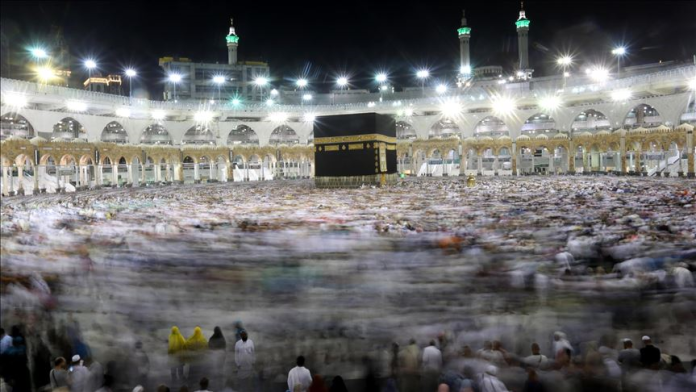Hajj and Umrah are two of the most significant religious pilgrimages for Muslims around the world. While both involve traveling to Mecca, Saudi Arabia, for spiritual rituals, they hold distinct meanings, requirements, and significance. In this article, we will explore the differences and similarities between Hajj & Umrah, the importance of each pilgrimage, and how to prepare for them in 2025.
Understanding the Importance of Hajj & Umrah
Hajj: The Pillar of Islam
Hajj is one of the five pillars of Islam and holds immense spiritual significance. It is a mandatory religious duty for Muslims who are physically and financially capable of undertaking the journey. Every year, millions of Muslims gather in Mecca to perform the sacred rites of Hajj, which include rituals such as the Tawaf (circumambulation of the Kaaba), standing at Arafat, and stoning the devil.
Hajj must be performed during a specific time frame in the Islamic calendar, which corresponds to the 8th to 12th days of Dhu al-Hijjah. It is a once-in-a-lifetime obligation for Muslims, symbolizing equality, humility, and the unity of the Muslim Ummah.
Umrah: A Voluntary Pilgrimage
While Hajj is obligatory, Umrah is a voluntary pilgrimage that can be performed at any time of the year, though it is especially rewarding during the holy month of Ramadan. Umrah consists of a set of rituals, including Tawaf, the Sa’i (walking between the hills of Safa and Marwah), and the Tahallul (shaving of the head or cutting the hair). Unlike Hajj, Umrah does not have specific dates and does not require staying in the holy cities of Mecca and Medina for the same extended period.
Though not obligatory, Umrah is highly recommended for Muslims who are able to afford and complete the pilgrimage, and it is believed to cleanse sins and bring great spiritual reward.
Key Differences Between Hajj & Umrah
1. Obligation
- Hajj: A mandatory pilgrimage for Muslims who meet certain criteria (financially and physically capable). It is to be performed once in a lifetime.
- Umrah: Voluntary and can be performed at any time of the year.
2. Rituals
- Hajj: More extensive and involves several days of rituals, including the Arafat stand and stoning of the devil.
- Umrah: Fewer rituals, completed in a shorter duration. The pilgrimage is more simplified compared to Hajj.
3. Time Frame
- Hajj: Must be performed during specific dates in the Islamic calendar, from the 8th to 12th of Dhu al-Hijjah.
- Umrah: Can be performed at any time of the year.
How to Prepare for Hajj & Umrah in 2025
1. Planning Your Trip
If you are planning to undertake Hajj & Umrah in 2025, it’s crucial to begin planning early. Pilgrims should book their travel arrangements, including flights, accommodations, and visas, as early as possible, since these can fill up quickly.
2. Health and Safety Considerations
Both Hajj and Umrah involve physical exertion, so it is essential to be in good health before embarking on these pilgrimages. Ensure you consult with your doctor and get any required vaccinations for travel to Saudi Arabia. Adequate rest and hydration during your pilgrimage are also vital to avoid exhaustion.
3. Choosing the Right Package
Choosing a reputable travel agency, such as Al Khalid Tours, will make your pilgrimage easier and more organized. They offer various Hajj & Umrah packages that cater to different budgets and preferences. Whether you’re looking for basic or luxury accommodations and transportation, it’s essential to select a package that suits your needs.
For detailed information on packages and booking your trip for Hajj & Umrah, visit Al Khalid Tours.
Spiritual Significance of Hajj & Umrah
Hajj: A Life-Changing Experience
Performing Hajj is one of the most transformative experiences in a Muslim’s life. The pilgrimage purifies the soul, strengthens faith, and encourages a sense of unity with fellow Muslims from all over the world. Hajj teaches humility, patience, and gratitude, as pilgrims stand side by side, all dressed in the same simple attire, symbolizing equality before God.
Umrah: A Journey of Spiritual Renewal
While Umrah is not obligatory, it carries profound spiritual rewards. Pilgrims who perform Umrah are believed to have their sins forgiven, and it is considered an opportunity for personal reflection and renewal. Many Muslims choose to perform Umrah in addition to Hajj as a means of earning additional blessings.
Conclusion
Both Hajj & Umrah are pivotal to the Islamic faith, each offering its own unique set of rituals and spiritual benefits. Hajj, being obligatory for eligible Muslims, is one of the most significant events in a Muslim’s life, while Umrah, though voluntary, provides a means for spiritual enrichment and cleansing. Regardless of whether you are preparing for Hajj or Umrah in 2025, careful planning and understanding of the process will ensure a smooth and rewarding pilgrimage experience.
For more information on Hajj & Umrah packages and to begin your journey, visit Al Khalid Tours.








